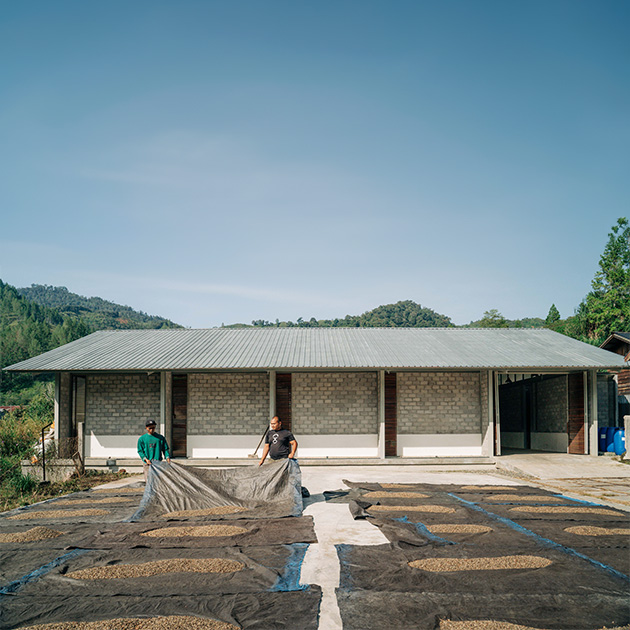Flores
Tura Jaji

For generations, Tura Jaji, a culture among Ende Lio community, consists of an oath containing agreements made and always upheld for those who make the oath, it means “a layered promises between Human, Nature, and God.” It is a sacred promise that is passed down by the ancestor and is respected by locals.
The role of Tura Jaji culture is to increase solidarity, managing social conflicts, maintaining culture and creating social integration. As recent developments threaten to erode the sanctity of their community lands, the cultivation of coffee emerges as an act of resistance, a means to fortify their cultural boundaries against external pressures.
In their villages, amidst the breathtaking vistas, the cultivation of coffee transcends mere economic endeavor, it embodies a commitment
to safeguard their lands. By creating and exploring new coffee origins like Flores, Adena Coffee aspires to preserve more heritage and uphold this symbiotic relationship between land, people, and their culture.
 Image Caption
Image Caption
“Together with Adena, I started to realize the dream of building education and economy in my village by continuing to preserve the Lio culture.
Through coffee, the village’s economy is growing and thanks to the transfer of knowledge from the Adena team, now we understand how to produce coffee with good quality.” —Ferdy Rega
Adena started working as Processor in Flores Kelimutu back in 2017. Started from Desa Sokoria, then slowly reached out the surrounding villages. As per today, Adena is working with five villages and involving 600 farmers households. We started our project from Desa Sokoria, which is Ferdy’s birthplace. Sokoria has a huge potential for farming, especially coffee commodity. While we were starting our coffee processing in Sokoria, at the same time Geothermal Power Plant project was set up nearby, and many team members were involved in the construction project.
Adena encourage the local community to register themselves as a Co-op to broaden their opportunities.The Co-op existence now has reached out the surrounding communities such as : Desa Toba, Desa Tenda Monggi, Desa Demulaka, and Desa Roga. Actively involved in social and empowerment activities, the Co-op is now associated with the Kelimutu National Park and also with Ende government. Adena has developed four processing centers : Sokoria, Tenda Monggi, Demulaka, and Toba just recently.
Adena constantly seek for better quality and efficiency, and also better impact for nature and local communities. We believe shadely-grown coffee elevates its quality and ecosystem sustainability. Shade trees grown here are Calliandra sp., Musa sp. (local bananas), Falcataria sp., avocado, local citrus, pomelo, and the endemic shading trees are ‘Waek’, ‘Natu’, and ‘Worok’.
We are always involved in the local cultural activities and delighted to be included in every ceremony, to look closer at the beauty of it. Inline with our vision which is to bring out the dignity of local culture, knowledge, agriculture, and local resource.
Ferdy was working as an elementary school teacher, before coming home to developing the Flores Tura Jaji coffee. Thus, he initiated an educational projects for kids from the farmer households : KOPINTAR, funded by the Flores Tura Jaji Coffee project. Its current programs include: English Conversation Practice, Study Tour, and Educational Savings.
Desa Toba is our biggest processing center and together we have built :
- Green houses / drying houses
- Raised beds
- Washing stations
- Wet Mill (Pulpers)
- Dry Mill (Dry Huller)
- Wet Hull station
- Warehouses
Adena process variety of products:
- Full Washed
- Honey Process
- Natural Process
- Fine Robusta Natural
Cultivar :
- Typica
- Lini-S
- Catimor
- Kolombia / Bourbon
Our Partner in Origin

Ferdi Rega
Origin Partner - Flores

Sumatera
Kenawat is Adena Coffee’s first origin. Formerly serving as a focal point for a separatist movement, its topography once bore witness to the fervent calls for autonomy. This village has undergone a metamorphosis and now stands as a burgeoning epicenter of coffee production. Through the cultivation of premium coffee beans, this locale not only contributes to the regional coffee industry but also symbolizes a poignant narrative of reconciliation and socio-economic revitalization.



